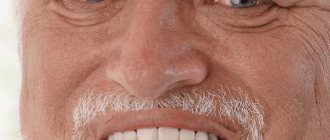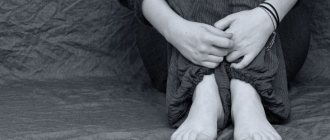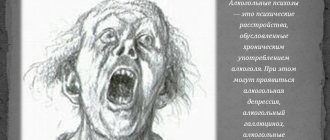This type of depression has symptoms that are rarely associated with depressive disorders.
Atypical depression is a type of depression that demonstrates the complexity of this group of mental disorders.
This is a sign that what we usually call “being depressed” is a complex psychological phenomenon that can be expressed by a wide variety of symptoms that can be classified in different ways. Below we will see what the symptoms of atypical depression are, what characteristics distinguish it from other types of depression , and what types of treatments have been most effective.
Features of the disease
Atypical depression is one of the most common types of the disease.
Atypical depression is one of the most common depressive disorders. This pathology is characterized by a variety of possible symptoms, which causes problems in timely diagnosis. Due to the specific nature of its manifestation, this disorder is difficult to treat.
According to statistics, atypical depression is diagnosed in more than 40% of patients with depressive disorder. Approximately 65% of patients with this diagnosis are women. The disorder is often diagnosed in adolescence.
The main difference from typical depression is more frequent, but rather short, episodes of exacerbation. This affective disorder is also experienced by people prone to panic attacks and anxiety disorders.
According to the International Classification of Diseases ICD-10, atypical depression belongs to the group of depressive episodes under code F32.8.
Despite the prevalence of this disease, the exact reasons for its development have not yet been clarified. It is very difficult to accurately predict the further course of the disease, since this type of depressive disorder can acquire various symptoms.
Interestingly, some psychiatrists consider atypical depression to be dysthymia, while another group of doctors classifies this disorder as mild bipolar disorder. In general, the lack of consensus about this disorder is the main problem in differential diagnosis of the disease.
Probable causes of the disorder
To date, it has not been possible to identify a single cause for the development of this type of depressive disorder. Experts identify several factors, both endogenous and psychogenic, that could potentially cause the development of atypical depression.
Endogenous or biological factors in the development of the disease are various diseases, both acute and chronic, as well as disturbances in the functioning of the body, leading to the development of a mental disorder.
Psychogenic causes of the development of the disease are factors that have a negative impact directly on the human psyche.
It should be noted that atypical depression can be caused by several factors. Many doctors consider this disease as a consequence of both pathological processes occurring in the body and traumatic events that happened to a person in the recent past.
Endogenous causes
Alcohol abuse can trigger the development of atypical depression
Atypical endogenous depression is a consequence of past illnesses or severe disruptions in the functioning of the body. Factors contributing to the development of this disorder include:
- impaired brain activity due to an imbalance of neurotransmitters;
- genetic predisposition;
- side effects of taking certain medications;
- endocrine disorders and hormone imbalances;
- infectious viral encephalitis, meningitis;
- chronic diseases with severe course;
- alcohol and drug addiction.
Neurotransmitters are substances that transport nerve impulses to muscle and glandular tissues. The development of depression is associated with insufficient production of catecholamines (dopamine, norepinephrine, adrenaline) and serotonin.
Medicines that can lead to the development of depressive disorder include opioid analgesics, antihypertensive drugs, and synthetic adrenal hormones (glucocorticoids).
Among severe diseases that provoke depression, cancer pathologies are distinguished. In addition, many doctors associate severe forms of generalized psoriasis with the development of depressive disorder, since this disease greatly traumatizes the human psyche, is practically untreatable, and large doses of glucocorticoids are often used in therapy.
Psychological factors
Among the probable mental causes are the following:
- personality psychotype;
- severe stress;
- tragedies suffered;
- inferiority complex;
- phobic disorders;
- features of upbringing in childhood.
People who are anxious, insecure, and for whom the approval of others is important are more prone to depression. As a rule, patients with atypical depression do not know how to cope with stress on their own.
Experts also identify tragic situations and traumatic events in the past, which a person could not cope with on his own, as one of the triggers for the development of depressive disorder.
Stress and tragedies can cause the development of depression only in people with a certain type of thinking and psychotype.
Anxious phobic disorder and frequent episodes of panic attacks indicate mental instability and are fertile ground for the development of atypical depressive disorder. The situation is aggravated if a person is inclined to haphazardly take various drugs, and is also susceptible to harmful addictions.
Personality conflicts and characteristics of upbringing are separately identified as causes of the development of depression. Thus, according to statistics, this disorder is more often encountered by people whose childhood was spent in unfavorable conditions or who were subjected to domestic violence.
Apathetic depression
Apathetic depression is a disorder characterized by apathy and lack of emotional response with mild signs of classic depression.
The cause of apathy is an increased load on the human psyche or frequent stress and high workload, lack of work and rest schedule, family conflicts and personal experiences.
Worth seeing: Resistant depression
Symptoms:
- loss of inner meaning and performing duties out of habit (i.e. complete apathy, depression);
- poor facial expressions, monotony of speech and slowness in movements;
- indifference to one’s own situation and detachment;
- internal discomfort and lethargy.
Apathetic depression is treated with antidepressants aimed at increasing vitality and stimulating the development of activity. In addition, if a person is isolated or the factors that caused the disorder are eliminated, then apathetic depression may disappear on its own.
Symptoms
With atypical depression, there is a decrease in libido
With atypical depression, symptoms can take different forms. As a rule, the symptoms of typical depression are present, but moderately expressed, while two or more manifestations characteristic of atypical depression are observed. These manifestations include:
- sense of anxiety;
- sleep disorders;
- overeating due to constant hunger;
- apathy;
- irritability;
- imaginary pain syndrome;
- decreased libido;
- phobias;
- motor disorders.
The feeling of anxiety manifests itself in episodes. This feeling can haunt a person for several days in a row, and then suddenly disappears. Sleep disorders include insomnia and constant daytime sleepiness. Motor disturbances in atypical depression can manifest as both retardation and increased agitation that occurs against a background of anxiety.
One of the specific symptoms is imaginary pain syndrome. This is a headache, chest pain or muscle discomfort that does not have an organic cause.
As with other types of depression, the atypical form of the disorder is manifested by decreased performance and a constant feeling of fatigue. People with this diagnosis feel a lack of energy to perform professional duties and are prone to procrastination. Against this background, a constant feeling of guilt often arises.
Asthenic depression
Asthenic depression is a disorder that manifests itself in the form of exhaustion. The cause is excessive stress on the human psyche.
Manifests itself in the following symptoms:
- decreased activity;
- maximum exhaustibility;
- fatigue and physical weakness;
- intolerance to irritants, tearfulness and weakness.
A feature of this emotional disorder is that a person experiences a feeling of maximum fatigue and exhaustion in the morning after waking up. And by the evening his condition may improve.
Treatment of asthenic depression occurs medicinally, with the help of antidepressants. Sometimes herbal medicine is used in combination.
In some cases, herbal medicine is used to treat asthenic depression
Types of violation
The asthenic form of atypical depression is manifested by constant fatigue and lethargy
Depending on which symptoms predominate in the patient, atypical depression is divided into several types.
- The anxious form of atypical depression is accompanied by panic attacks, exacerbation of phobias, and fear of death. This form is characterized by increased production of adrenaline, so patients complain of tachycardia, pressure surges, and hand tremors.
- Masked depressive disorder is one of the most difficult types of atypical depression to diagnose. This form of disorder manifests itself with symptoms of other psychoneurological pathologies. Most often, the disease is “masked” as neurocirculatory dystonia, migraine, or osteochondrosis of the cervical spine. Accordingly, the disease manifests itself with typical symptoms of atypical depression against the background of signs of these pathologies. The peculiarity of this form is the low effectiveness of medications aimed at eliminating the imaginary cause of the ailment.
- The apathetic form of the disorder is manifested by a decrease in interest in life and anhedonia. The disorder is manifested by motor retardation, scarcity of emotions, and a desire to be alone.
- The asthenic form of atypical depression is characterized by a lack of strength, constant fatigue, and lack of vital energy. A typical symptom of this form of the disorder is an increased need for sleep. A person can sleep 10-12 hours at night, and then still feel a lack of energy during the day. It is interesting that in the evening the symptoms often subside, and worsen mainly after an overnight rest.
- The hysterical form of depressive disorder develops against the background of personal experiences, tragedies, and the loss of a loved one. A patient with this diagnosis is prone to increased emotionality and tries to find solace from others, therefore he always describes his personal experiences figuratively and emotionally.
- Depressive disorder with delusions is one of the most severe forms of the disorder. The disease is accompanied by many phobias, an inferiority complex, and a constant feeling of guilt. The problem with this form of disorder is that people rarely seek medical attention, but at the same time they demonstrate suicidal tendencies.
Each of the listed forms of atypical depression requires an individual approach to treatment; there is no universal treatment regimen. As a rule, atypical depression is paroxysmal in nature. Episodes of depression are quite frequent, but can not last long - from several days to a week and a half, every 2-3 months.
The disorder requires differential diagnosis and a comprehensive examination to exclude endogenous factors.
Features of treatment
Phenazepam is prescribed orally in the form of tablets (possibly the side effects are the same as for Elenium and Seduxen)
Treatment of atypical depression is carried out with drugs from the group of monoamine oxidase inhibitors. Such antidepressants show good results in a short period of time, and their action is aimed at stabilizing the patient’s mental state and eliminating the disturbing manifestations of the disorder.
In addition to antidepressants, medications are prescribed for symptomatic treatment, depending on the severity of certain symptoms.
So, in case of an anxious type of depression, tranquilizers are necessarily prescribed. Preference is given to the drug Gidazepam, Phenazepam. These medications eliminate the main symptoms, reduce irritability and anxiety.
For the apathetic form of the disorder, mainly daytime antidepressants are used, which do not suppress the activity of the nervous system. With this form of disorder, it is important to increase the overall tone of the body.
The asthenic form requires a gentle influence, so the main therapy with antidepressants can be supplemented with herbal medicines, a course of physiotherapy and a relaxing massage.
If depressive disorder is accompanied by delusions, multiple phobias and suicidal tendencies, therapy is carried out exclusively in a hospital.
Folk remedies
Treatment of atypical depression with folk remedies is an auxiliary, not a primary therapy.
At home, you can use tonic tinctures to increase general tone (ginseng, eleutherococcus) in asthenic and apathetic forms of the disorder. For hysterical and anxious depression, sedatives (chamomile, valerian root, tincture of peony evasive) are recommended to improve night sleep and reduce anxiety.
During treatment, a light diet is recommended to improve drug tolerance. You should limit your consumption of heavy foods, give up processed foods, fast food and an abundance of confectionery.
Hysterical depression
Hysterical depression manifests itself in the form of a disorder in which exaggeration and display of one’s own grief are clearly manifested, with little expression of depression and motor retardation.
The most common reason is the loss of a loved one or the breakdown of long-term contacts.
Symptoms:
- an emotional description of one’s own grief in all its details;
- complaints of unusual bodily pain (nail in the heart, needle in the heart, etc.);
- in rare cases, hallucinations (can see the deceased);
- sleep and appetite disorders.
Treatment of a hysterical state occurs using complex methods and depends on the prevailing symptoms. Thus, antidepressants can be prescribed together with antipsychotics, psychotherapy and anxiolytics.
The loss of a loved one often leads to hysterical depression












